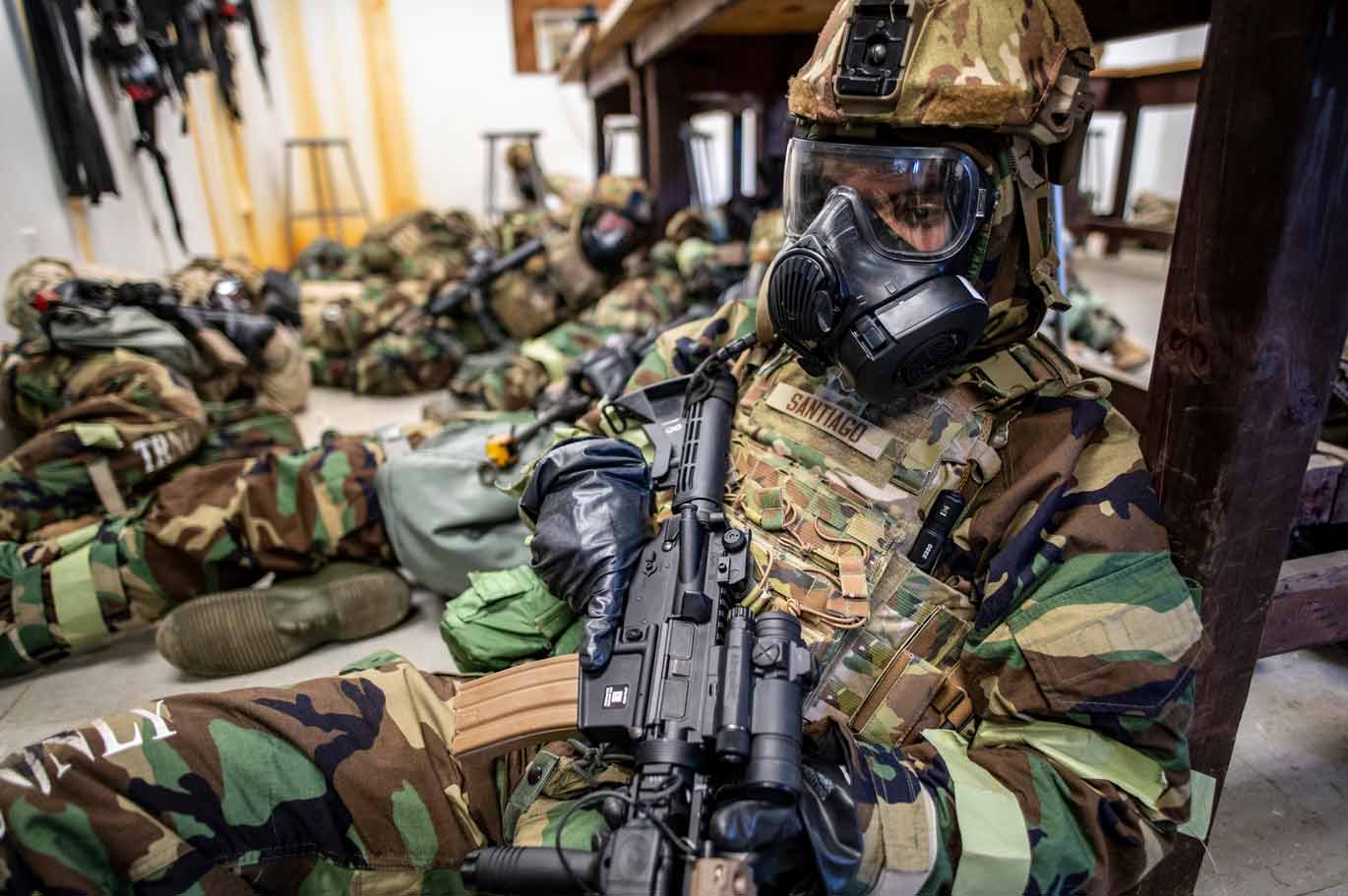The Russian CBRN threat: How real is it, and is the West prepared?
As the war in Ukraine drags on, Russia could revert to chemical weapons, says a new report. But how would allies respond?
Anita Hawser
27 October 2023

A new report by the Atlantic Council and Sowcroft Center for Strategy and Security highlights the continued threat posed by Russian chemical weapons to Europe and the US.
“Of particular concern is Russia’s routine flouting of arms control, disarmament, and non-proliferation norms,” the authors of the report “Conceptualizing Integrated Deterrence to Address Russian Chemical, Biological, Radiological, and Nuclear Escalation” state, adding that Russia has already violated its arms control commitments by developing and using a novel fourth-generation nerve agent, Novichok, in the United Kingdom back in 2018.
As the war in Ukraine either becomes “deadlocked” or Russia starts to lose the so-called conventional war against Ukraine, Moscow may use CBRN weapons to achieve its objectives, the report states. This doesn’t necessarily mean a large-scale deployment of CBRN weapons on the battlefield, the report states, but could mean more frequent targeted strikes with CBRN weapons in the near term
“Even if Russia is winning a conventional war, the Kremlin will maintain its CBRN weapons capabilities to project legitimacy and its status as a great power,” says the report’s authors. “Russia will also rely on CBRN weapons as a demonstration of strength and as a method of deterrence.”
The hollowness of Russia’s conventional capability, combined with its military doctrine and dangerous rhetoric, reinforces the important role that CBRN capabilities will likely play in Russia’s defence strategy in the coming years, says the report, which outlines several possible scenarios that could emerge.
However, the authors point out that there is a gap in US and European understanding of the manifestation of this risk in the near-to-mid-term. Moreover, they say it is unclear how allies and partners fit into the United States’ approach to mitigating CBRN risks through integrated deterrence, which is a cornerstone of its 2022 National Defense Strategy.
If Russia were to integrate CBRN weapons into its strong conventional capabilities, the report’s authors say this would require stronger coordination among allies especially “for detection and attribution of the use of CBRN weapons below NATO’s Article 5 threshold.”
To counteract Russia’s potential use of CBRN weapons to achieve geopolitical goals, the report says allies should consider prioritising greater integration of civil-military relations on critical security infrastructure, such as power grids, public health systems, cyberinfrastructure, and other domains, to reinforce defences against potential attacks with CBRN weapons.
To combat CBRN-related threats at all levels, cooperation among the US and its European allies and partners needs to extend beyond strategic-level decision-making, the report states. “The United States could better coordinate and integrate operational and tactical planning in bilateral settings with its European allies as well as in multilateral platforms, such as NATO.”
Beyond traditional forms of deterrence, the report says coordination at the multilateral level, such as within NATO, may be effective in countering the Russian CBRN threat. But new technologies and current developments in biology and chemistry, are changing the nature of the CBRN threat, especially concerning engineered organisms, viruses, pathogens, and other diseases, which the report says offer an avenue to create biological weapons with heightened virulence and infectivity that can threaten society.
“New technologies, such as artificial intelligence and machine learning, also introduce new challenges,” the report states. “Because CBRN capabilities and technologies have rapidly evolved, many developments are not explicitly covered in existing frameworks that govern responsible use. In each scenario, Russia may exploit these ambiguities to avoid export controls, treaty obligations, and other regulatory measures to improve these capabilities.”
Conceptualizing Integrated Deterrence to Address Russian Chemical, Biological, Radiological, and Nuclear Escalation is authored by Natasha Lander Finch, nonresident senior fellow with the Transatlantic Security Initiative in the Scowcroft Center for Strategy and Security; Ryan Arick, assistant director with the Transatlantic Security Initiative in the Scowcroft Center for Strategy and Security; and Christopher Skaluba, director of the Transatlantic Security Initiative in the Scowcroft Center for Strategy and Security.